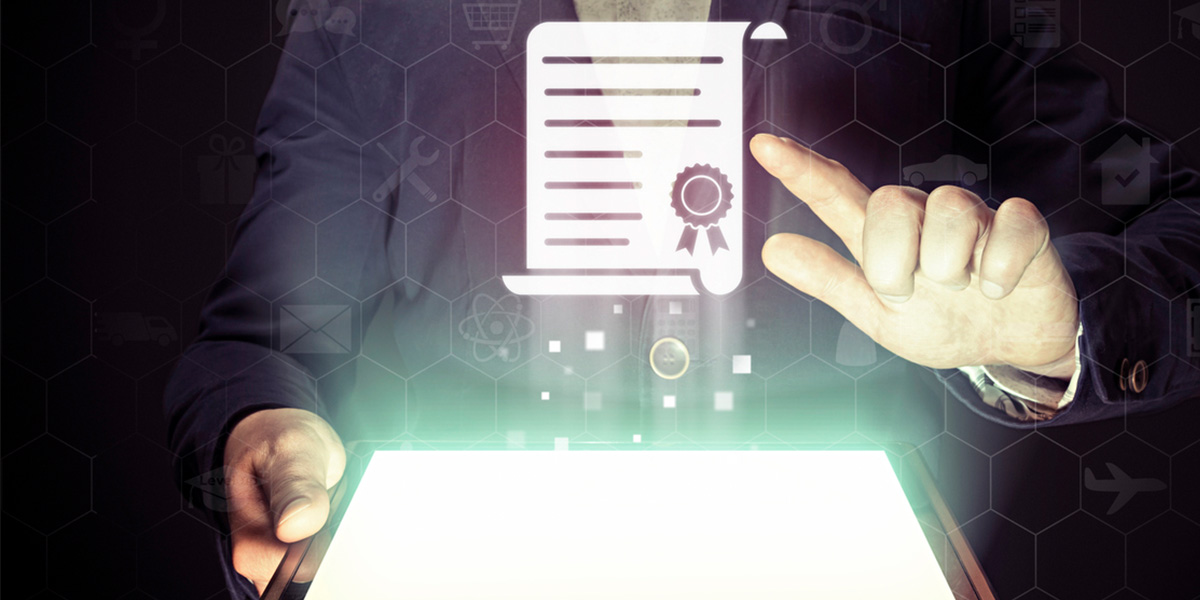What to Know About Digital Badges and Certifications
We know that blockchain technology has the potential to revolutionize a variety of sectors and industries. As a company which offers an intuitive, low-code, smart-contract-as-a-service (SCaaS) platform, we’re excited for what the future holds for blockchain and decentralized ledger technology. Blockchain continues to excel is within the education sector, where blockchain has wide-reaching applications from student records, to file storage, to curricula. One area within education blockchain has already proven its worth is that of digital badges and certifications.
What are Digital Badges and Certifications?
Digital badges represent an indication of an accomplishment or skill which can be verified, accessed, and viewed online. While they can be earned in a variety of ways, badges are becoming increasingly common.
The term digital certificate can have many meanings; the most common definition refers to cryptographic proof of ownership. However, in the eLearning context, digital certifications are often thought of as a subcategory of digital badges, specifically those rewarded upon the completion of a course or seminar; they also may be rewarded as a digital equivalent of a certificate of membership in a group or association.
History of Digital Badges and Certifications
Traditional physical badges have been around for hundreds of years and used by organizations from the Russian Army to the Boy Scouts of America. The idea of digital badges is a much more recent development drawn from research and gamification. As a use in the latter, organizations like Foursquare and the Huffington Post used badges to reward users for accomplishing certain tasks. Further, in 2005, Microsoft introduced the XBOX 360 Gamerscore system, which is now considered a precursor to the modern achievement system.
To draw an equivalency to academia, we know a diploma is a tangible, physical credential of recognition or achievement. While also a symbol of recognition or achievement, badges are basically diplomas in digital form.

Students who earn them can easily share digital certifications as proof of their achievement.
What are the Benefits of Digital Badges?
Representing credentials as a badge gives students the ability to share capabilities online in a simple, trusted way, that can be easily verified in real time. Badges also provide employers and peers visible evidence of what they had to do to earn it.
Badges are also self-regulating, meaning if the certification is not renewed, then the former holder of the badge or certificate will no longer be able to display it on a website or social media account. Badges also can’t be counterfeited or copied. Even though these badges look like digital files, the data associated with them is unique and owned by the recipient and is verified to make badges more reliable and secure than even traditional paper credentials. This eliminates the possibility of someone falsely claiming a credential which is not their own (for reference, this is also how NFTs
Digital badges and certification have the ability to lead the way in the next generation of education and, as eLearning continues to become more prevalent, these pieces of technology may grow in prominence with it. As an organization committed to helping educators streamline their processes to benefit students, SIMBA’s powerful blockchain platform is fully capable of designing and rewarding digital badges and certifications. Interested? Contact us today!